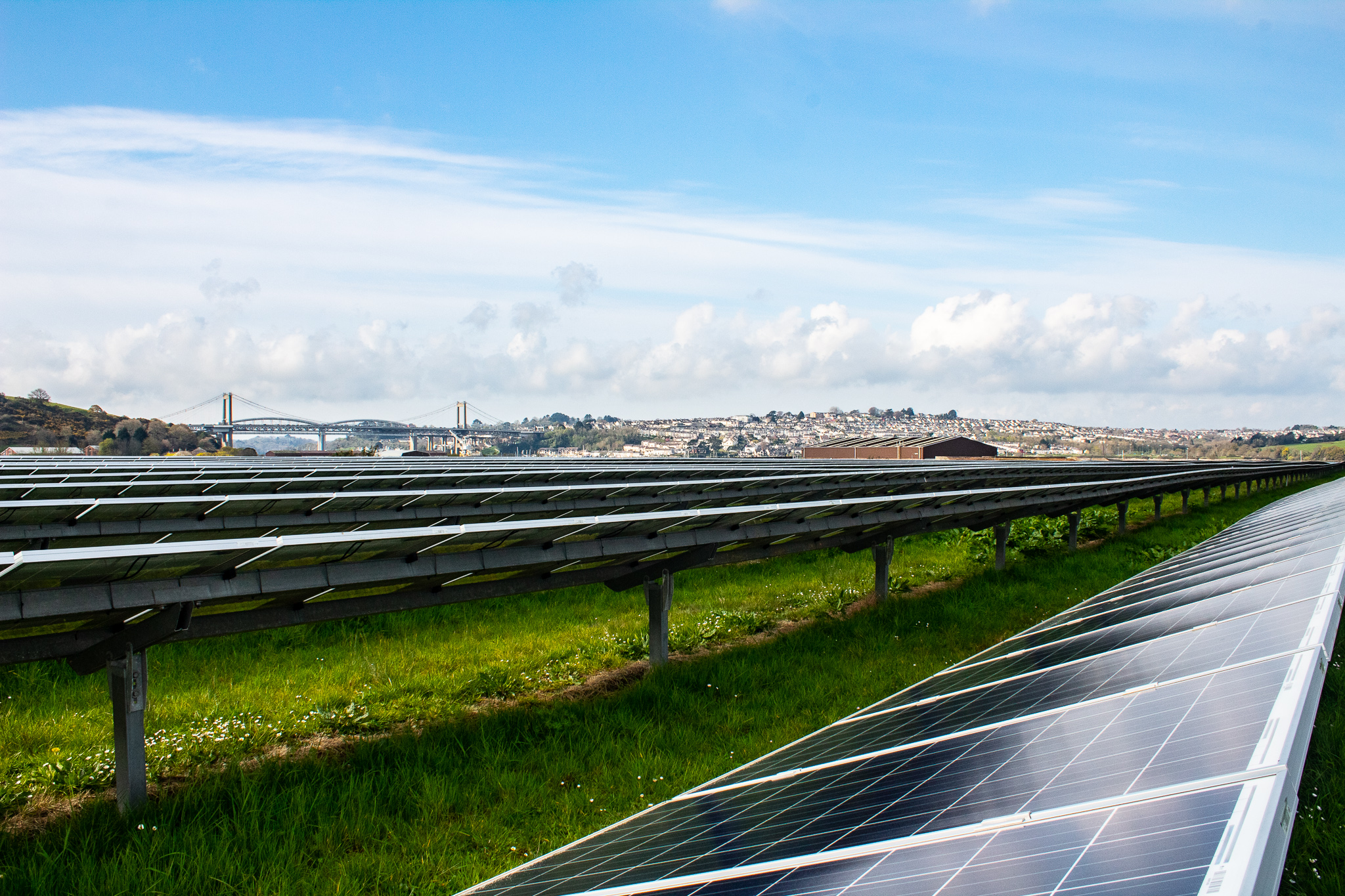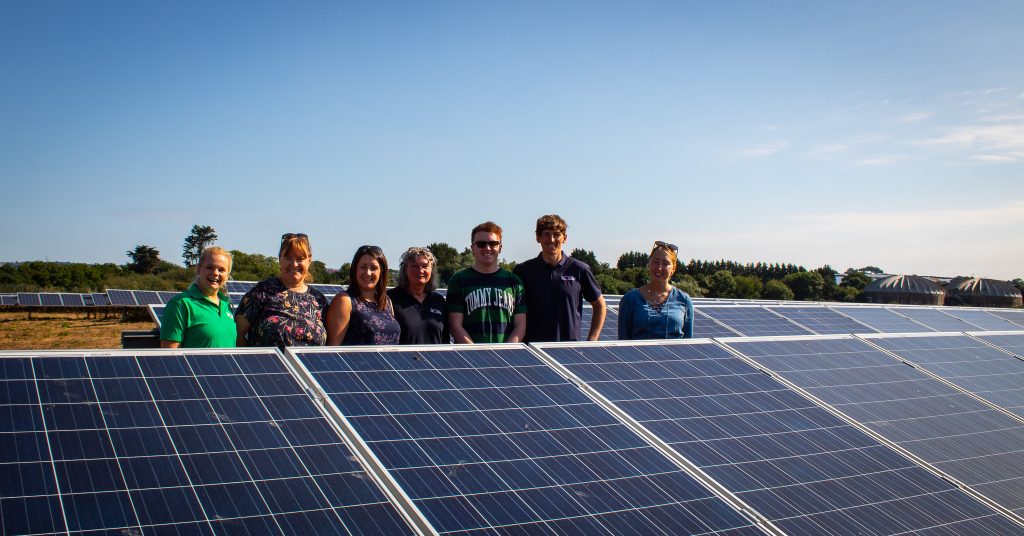PEC operates through a mix of community share funding, grants and external loans, with any profits flowing back into the community. Plymouth has become a true pioneer in the municipal energy transition, specifically in how local authorities can work with and nurture community efforts to improve energy efficiency and address social issues. Most importantly, PEC encourages residents to take charge of building a just city fit for future needs.
Fuel poverty, health and well-being in Plymouth
Plymouth is a city of 260,000 inhabitants in the county of Devon, Southwest England. Located where the Rivers Tamar and Plym flow into the sea; the city has long been one of the country’s most important ports. Its manufacturing sector and the harbour – once a transit port for migration to the Americas – still dominate the city’s economy and landscape. In recent decades, the city has faced a number of challenges: declining productivity, falling wages, and increasing poverty and inequality. The dockyard that once employed tens of thousands of people is now much depleted, employing just 2,500.i Citizens have experienced erosion of economic stability, exacerbated by a social services sector reeling from cuts in public spending. Mental health problems have worsened through greater pressure-and less support for- individuals, and areas like Devonport exhibit a child poverty rate of up to 40%.ii

Credit: Plymouth Energy Community
These problems also mirror the 14.1% (up to 35.2% in some districts) of Plymouth residents living in fuel povertyiii – meaning that if they were to heat their homes properly, it would cost them more than 10% of their income.iv Fuel poverty has been clearly linked to mental and physical health problems, as people have to make the hard decision whether to eat or to heat. Fuelled by rising energy prices and substandard housing, residents must make a choice between the misery of living in cold and damp homes, or building up an unpayable debt; one of a variety of factors that are contributing to higher suicide rates in the city.
Plymouth Energy Community: An organisation benefiting the community
Facing limitations in financial means and human resources, Plymouth City Council helped to create a community-based cooperative as a potential solution to fight fuel poverty and reduce carbon emissions. In April 2013, a group of engaged people came together to found a community energy organisation based on cooperative principles, and PEC was born. It was set up from the beginning as a community benefit society, which delivers energy related projects for and in partnership with the council. Provided with a start-up loan, a grant and staff expertise by the council via a service agreement, PEC’s primary mission is “to empower our community to create a fair, affordable, low-carbon energy system with local people at its heart”. In essence, it is about people power.
Its three main targets are:
- Reducing energy bills
- Improving energy efficiency
- Facilitating local ownership of a green energy supply in the cityv
Established by 100 founding members, PEC is now supported by over 88 members, 499 supporters and 530 investor members. The board consists of 8 non-executive directors who are elected by the members (each member has one vote), up to two chosen directors according to their skills and one additional council representative. Members regularly participate in events, and supporters receive regular updates about PEC’s work and opportunities.

Credit: Plymouth Energy Community
PEC has evolved to run a variety of projects tackling fuel poverty and reducing the city’s carbon footprint. These include affordable or free insulation and boiler schemes, a team of professional energy advisors offering house-visits, a volunteering and training programme, and a pilot project targeting those with health issues exacerbated by cold, damp homes. To date, PEC has helped over 20,000 households to save over £1 million pounds on their energy bills, and cleared more than £26,000 of small debt amounts, significantly lowering the burden for the most vulnerable households in the city. In 2014, PEC set up a sister organisation, PEC Renewables. This cooperative funds, installs and manages renewable energy generation schemes in Plymouth for the benefit of the community. By establishing locally owned infrastructure, this is ensuring that some money spent on energy bills within Plymouth remains in Plymouth.vi
Energy efficiency advice for public facilities and private businesses
Financed through community shares offered to the public, and a loan of £500,000 from the City Council, PEC began in 2014 to install solar panels on the rooftops of 22 schools and community buildings. This allows the schools to invest related savings in better education for the children. The solar panels also have a direct educational purpose to raise awareness among Plymouth children about the value of environmental protection, which is now integrated in the school curriculum.vii In 2015, supported by another council loan, PEC raised £850,000 in a second run to finance another ten solar roofs, including that of one of the busiest leisure centres in the country. Since 2016, PEC has upgraded lighting efficiency in school buildings through LED bulbs, and extended their service to other organisations and local businesses; enabling them to save up to 70% on their energy bills.viii Public organisations and schools benefit from grants and zero-interest loans, covering up to £5,000 on investments in LED lighting.
With community shares towards solar power: The Ernesettle solar array
The suburb of Ernesettle is situated on the shores of the River Tamar, in the Northwest of Plymouth. In 2015, a piece of derelict land was identified as a potential asset for the community. Located next to a wastewater treatment plant and a munitions storage facility, the area is classified as a blast zone, making it unsuitable for many productive land uses. Supported by a broad network of partners, PEC Renewables came up with the idea to build a ground-mounted solar farm, owned by the community, to supply renewable energy. With a bridging loan from a social finance provider, construction works were finished in record time. The 16,000 solar panels started generating energy in March 2016, transforming a previously useless space into one providing a positive impact on the community.
To fund its schemes, PEC Renewables uses a mix of council loans, grants and community shares (ranging from £50 to £100,000). By 2017, 520 investors had raised a total of £2.4 million in community sharesix,with £1 million retrospectively assigned to the Ernesettle solar project. Shareholders are paid back over the lifetime of the scheme and earn a target interest rate of 5-6%, making the community share offer a rewarding local investment, even for small pockets.
The rooftop arrays and Ernesettle solar farm now supply 6MW of clean energy, enough to provide electricity for 2,000 homes, and saving 72,500 tons of CO2 over the 20 years of the project’s lifetime. Host organisations have already saved over £450,000 from solar roofs. Local economic development trust, Four Greens Community Trust (FGCT) receives an annual land rent from the ground-mounted array, which is used for local projects in the Ernesettle area, such as creating a community allotment garden.x Surplus profits, expected to accumulate to around £1.5 million, will support PEC further in its carbon and fuel poverty reduction projects.The solar schemes unlock finance for PEC’s advisory service, the creation of new jobs and biodiversity enhancement projects such as wildflower meadows and beehives.xi
Making homes more efficient: A person-centered approach
An aggravating factor for the lack of energy efficiency causing fuel poverty is that many inhabited buildings are in poor condition. Some are old 19th century estates, and a large portion of which was hastily erected in the post-war period, initially only as temporary solutions. Low housing standards mean that many newly built homes are also not properly insulated.xii Insufficient heating along with a damp climate further deteriorates the buildings and increases problems with damp and consequent mould, endangering people’s health.
This is evident especially in Keyham, one of the more deprived neighbourhoods of Plymouth. The dilapidated state of the older buildings in the area makes insulation a major challenge to be addressed in order to bring warmth back to people’s homes. PEC’s multi-skilled energy efficiency advisory team have installed 15,000 LED light bulbs in 1000 homes, fitted over a mile of draught proofing, and provided other simple and accessible energy saving measures, all with the goal to reduce carbon emissions and fight fuel poverty at the same time. To apply a multi-skilled, person-centered approach, advisors receive an extensive program of training, including suicide prevention and conflict resolution, in order to prepare them for work in vulnerable communities. PEC’s first aim in any visit is to listen to the householder and seek to understand the challenges they face, then to support them to improve their circumstances.xiii
Heat from the earth and sea?
Today, 95% of heating in Plymouth is done by gas, a significant contributor to its greenhouse gas footprint. A potential solution for this could be found in an unexpected place. Under the surface of the city centre sits a limestone aquifer, 70 meters down. As part of a plan for a district heating network, Plymouth City Council has explored the option of extracting heat from this water using a heat pump through their Heat Net project. Wells are now being drilled with other enabling infrastructure to connect new development sites going forward. Longer term plans, including connecting up to a network of heat sources, such as water source heat pumps from the sea and the heat output from energy waste plant in the city, could make the city centre independent from gas heating.xiv
Conclusion
PEC has empowered residents to become advocates of change instead of passive users, bringing hope and excitement back into the once stagnating harbour city. The sense of community the council puts at the heart of its engagement is based on mutual support and community building. The experience of Plymouth showcases how a democratic transition of energy supply and efficiency can have far-reaching positive impacts on the entire city, with citizens and users regaining confidence and agency in times of overall uncertainty and political frustration.
About the author:
Justin joined the PEC team in September 2017. He coordinates PEC’s energy team to install simple energy efficient measures and provide advice. He also works behind the scenes to develop new opportunities. Justin also represents Plymouth in the mPOWER Exchange programme.
